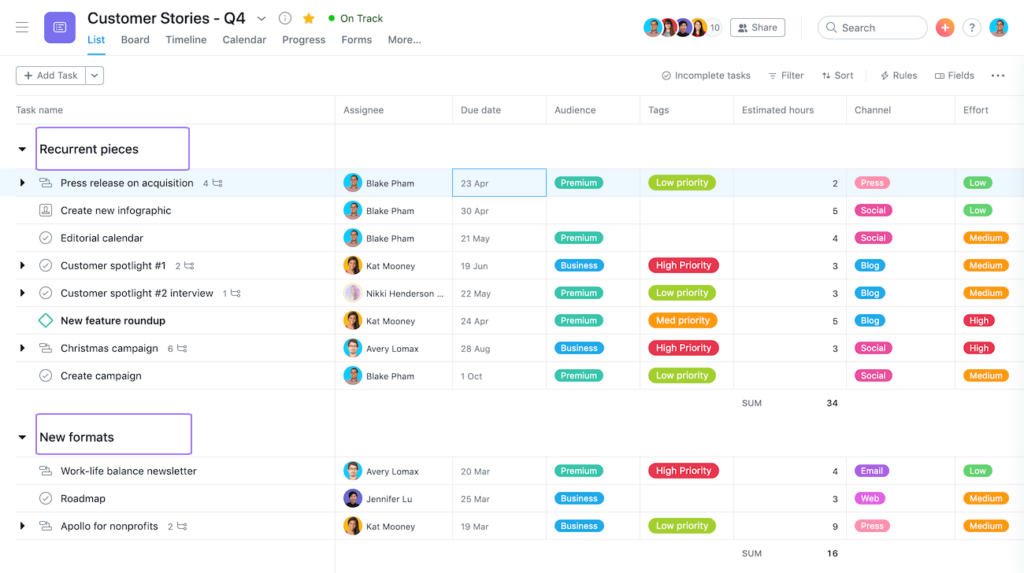Effective Tips for Freelancers to Stay Productive

Table of Contents
- Productivity Hacks for Freelance Writers
- Key Takeaways
- Conclusion
- FAQs
Are you overwhelmed by the sheer amount of screen time you put in as a freelance writer? There’s no doubt that consistently churning out quality content is draining, both physically and mentally. While wishing for more than 24 hours in a day is a fruitless pursuit, there are ways you can make the time you have work in your favor.
Productivity Hacks for Freelance Writers
If you want to declutter your writing schedule, check out these effective tips for freelancers from the top writers here at Pepper.
Know when to draw the line with research
Do you find yourself reading an ebook for a 700-word article? Well, it’s not that you shouldn’t do your research thoroughly. But do ask yourself: how much worthy information can you really fit into your write-up?
More often than not, it helps to fix your structure or subheadings first, and then research for each section, only as much as your word count allows. This way, you can break down your research into easier chunks. Pass the writing baton between writing and research, so you don’t lose momentum right from the get-go.
The best way to account for how much time you’re putting into research is to note down all the citations for your write-ups a couple of times. Understand your sweet spot: “Does the quality of my work usually improves significantly by reading 6 research papers instead of stopping at 5?”
Keep an ideas file
Do you often come up with brilliant ideas during a shower, when you’re out on a walk, or even while doing mundane tasks like washing dishes? For most creative pursuits, ideas click when the mind is least productive. Don’t let those ideas remain fleeting thoughts: simply jot them down in a notebook or app. This idea file will become your go-to cure when you feel you’re running out of juice for your content.
Make do with a dirty first draft
This is one of the most significant freelance writing tips. Whether you use the freewriting technique or note things down in bullets for outlining your first draft, don’t try and make it picture-perfect yet. The point of a draft is just that: it’s meant to be edited later on.
Most importantly, understand that freewriting doesn’t mean you can ramble on till you’ve successfully ejected all your ideas on paper. It’s alright to save some for the next piece. Don’t go over twice the designated word count for any section within your draft.
Avoid self-editing
While writers are sticklers for grammar, being finicky about it right from the start will definitely hinder your productivity. Let loose on your first draft, and don’t spend time thinking too much about whether a colon or hyphen can bring more impact to that perfect sentence. Ensure that you don’t get caught up in this web and let the editor handle it for you.
Set fake deadlines
Setting fake deadlines not only helps ensure that your clients are happy with your punctuality, but also gives you some wiggle room in case you hit a writer’s block midway through your piece. You’ll be mentally prepared to tackle the rest of the piece in time, even if you’re not feeling inspired.
This is a must-try tip for new freelancers, as it helps you hold yourself accountable, which in turn, acts as a gateway to reducing your stress and anxiety. Better mental health always results in more creativity and faster productivity.
Start strong
Much like baptizing a baby, every beautiful write-up starts with a good name. Appeal to the reader’s self-interest and yours, and you’ll quickly have a barrage of ideas to work with, AND a targeted conclusion in mind. This freelance writing tip can go an especially long way in helping you understand what your audience or clients love.
Set a timer
While writing is thoroughly a creative pursuit, remember that it takes more than just passion to make it a well-paying job. It’s important to set yourself a timer so that you know how much you can realistically accomplish every hour. More importantly, much like a job, setting up a particular writing time every day can help you train your brain to get the job done. During this time, make sure that you’re away from all distractions, including your phone. This effective tip for freelancers is one of the best ways that you can avoid burnout.
Make it interesting
If freewriting is slowing you down, try switching the format during the first draft. This means breaking out from the usual article structure. There are some simple ways of applying this writing tip.
- Adding a bulleted section between paragraphs
- Researching helpful images or infographics that you can use within the article
- Incorporating humour, sarcasm, or other interesting tones
- Including Q&A-type content for brevity
- Switching to active voice
- Finding relevant facts, statistics, and other journalistic tools
Use productivity apps
Apart from Grammarly and Hemingway Editor, there are other tools that you can use to improve your productivity. For example, use a to-do list app specifically for writing tasks; this is especially helpful when you’re covering longer pieces that consist of 4000+ words. Productivity apps not only help you even out your calendar but also give you tiny rewards in the form of a green tick for every task you accomplish successfully.

Key Takeaways
- Research only what you need based on word count.
- Keep editing and proofreading to the very end, and get used to freewriting without worrying about the nitty-gritties. Ensure you don’t exceed the word count right from the get-go. This is one of the most useful tips for beginner freelancers.
- Allow your mind time to reflect on your write-up/first draft before you start the editing process.
- Start with an emotionally engaging heading. Follow through with a strong first paragraph.
- Make sure that you keep things scannable for readers.
- Add interesting features such as images and bullet points to your article.
- Set a dedicated, distraction-free time and workspace for your work. None of these freelancing tips and tricks are likely to work if you’re not actively organizing your day.
- Use productivity apps to improve your workflow.
Conclusion
We get that writing (especially, writing for a client) can get quite cumbersome at times, and you may even experience the occasional writer’s block. However, by stepping back for a second, reassessing your thoughts, and using your time wisely, you can get your productivity up again. Use these simple yet effective tips for freelancers to improve your efficiency, and be assured that you’ll hit your monthly target with freelancing!

FAQs
Setting up a calendar in advance for any posts, blogs, or other content can go a long way in helping you plan out your time. There should be a balance between the number of clients you work for and the quality you put in.
Freelance writing is entirely dependent on your capacity. You can choose to work freelance throughout the day or just a few hours per day, as a side hustle.
One of the most effective tips for freelancers to self-edit is to read your work out loud. This process makes it easy to fine-tune the rhythm and flow of your article.
Keeping a daily earnings goal and gradually improving your writing can help fuel your growth as a freelance writer. This freelancing tip for beginners takes time to implement but is tried-and-tested.
Break down your writing tasks into smaller tasks, and tackle each at a time.
Most people follow three steps: prewriting/research, drafting, and editing. You can also include revisions as you go. A common freelancing tip for beginners is to try every writing technique and see what works best for you.
Latest Blogs
Explore how Google’s 2025 AI search updates triggered ranking chaos. Learn actionable strategies to adapt your SEO for AI Overviews, zero-click searches, and SERP volatility. Stay ahead now.
Learn how to rank on AI search engines like ChatGPT, Perplexity, and Gemini by optimizing your content for authority, structure, and relevance. Stay ahead in AI-driven search with this strategic guide.
Explore the best healthcare SEO services for your medical practice. Improve online visibility and effectively reach more patients in need of your services.
Get your hands on the latest news!
Similar Posts

Freelancing 101
5 mins read
11 Resources For Designers to Find Freelance Jobs Online

Freelancing 101
6 mins read
30 Freelance Industry Statistics to Get You Started

Freelancing 101
5 mins read